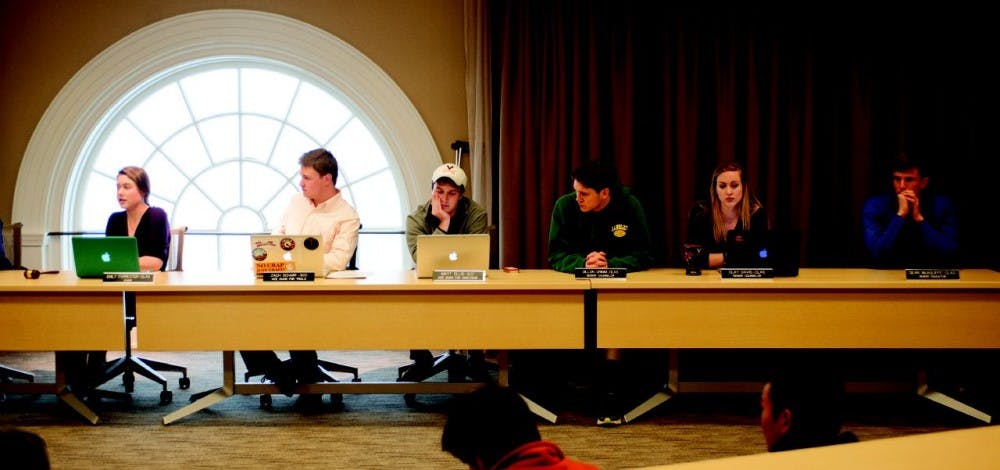The University Judiciary Committee elected third-year Engineering student David Ensey as its new Chair Sunday evening, in addition to selecting its three new vice chairs.
Ensey said the new Committee leadership was generally pleased with the way the Committee was currently being run but hoped to improve the efficiency of the process.
“I think the four of us that have been elected to the voting membership on the executive committee are committed to bring a sense of efficiency to everything that we do,” Ensey said. “We owe it to any accused party to make the process as streamlined as possible and as fair as possible.”
Second-year Law student Kyle Mathews, the incoming vice chair for trials, said the new Committee needed to improve outreach to graduate school students.
“I think that one of the things that you [will] see is a very concerted push to let first-year undergraduate students know what the UJC is,” Mathews said.
Ensey said the diversity of schools represented in the Judiciary Committee’s incoming leadership was an asset and reflected the organization as a whole.
“Because the Judiciary Committee is so central to student self-governance, one of its greatest assets is that we draw from every school,” Ensey said. “We’re able to find people committed to student self-governance, and it doesn’t matter where they come from.”
The new committee will be choosing its new senior support officers for councilors, education, and investigations within the next week-and-a-half, Ensey said. Third-year Commerce student Kelvin Wey, the incoming vice chair for sanctions, said he was looking for “past commitment to the Committee and ideas for moving forward” when selecting senior support officers.
Third-year College student Sean McAuliffe, the incoming vice-chair for first-years, said he hoped to increase outreach efforts and better coordinate with the Residence Life staff to improve recruitment.
“One thing we did really well last year…is making sure that we’re getting the best first-year student leaders that we can,” McAuliffe said. “You’re developing leaders for the Judiciary Committee and you’re also developing leaders for the community at large.”
Outgoing Committee Chair Emily Forrester, a fourth-year College student, said her role with the Committee would end almost entirely after the transition on April 1.
“After next week, one of the benefits of the job is when you’re done you’re done, due to the confidentiality aspect,” Forrester said. “This is really the week when I can be very forthcoming and very detail-oriented in helping them transition.”







